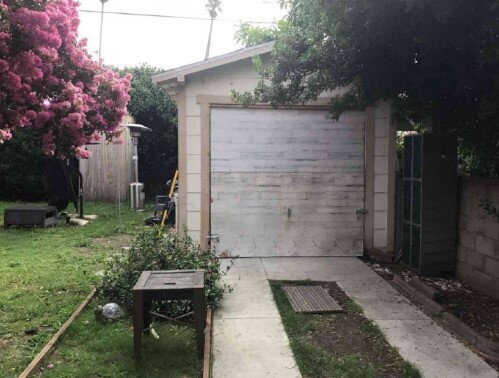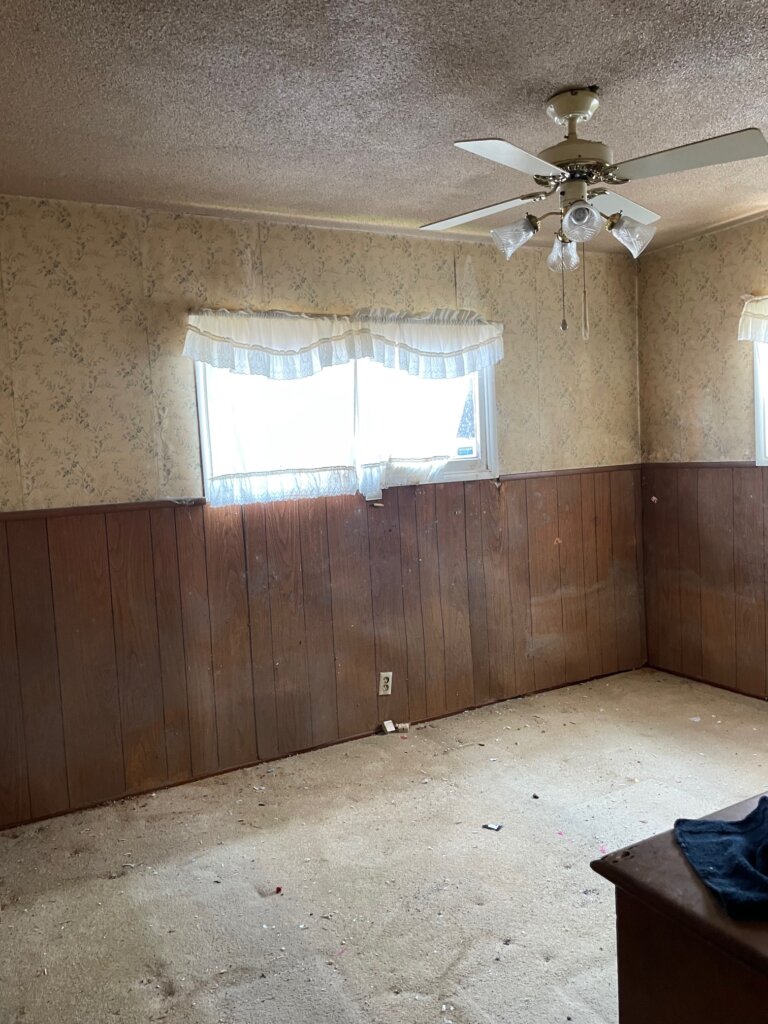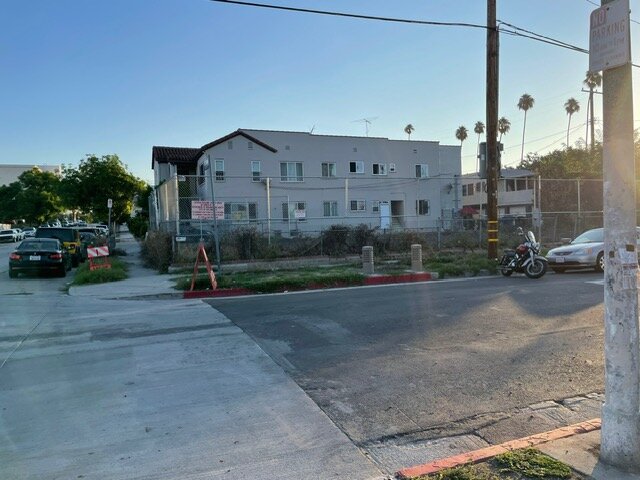Inheriting a property in California can create an expectation that you’ll receive a huge windfall of cash. On the other hand, inheriting a property can bring mixed emotions. If the Los Angeles property is very old and unmaintained, an inherited property in Los Angeles could also be tough on your bank account. Does the property need expensive upgrades and repairs? Has the property suffered from major fire, water, or earthquake damage? Does the property have tax liens or city liens due to Code Enforcement Violations? Does the property have tenants and are the tenants causing you headaches? Are the tenants in the inherited property in Los Angeles paying you rent? How much will you have to pay in taxes? Is there a will or will you need to deal with the probate process?
With the right information and professional guidance, an heir (person inheriting a property) can hire the right professionals and cash out of the estate in a timely manner. Inherited properties are also a great opportunity for real estate investors and buyers looking to buy a property they can make their own. But what does it take for a Los Angeles homeowner to sell an inherited property in Los Angeles? Are there special steps that need to be taken to deal with this type of sale in California ? This article will explain the process of selling an inherited property to (hopefully) make a profit.
How To Sell An Inherited Property in Los Angeles
So you’ve inherited a property in Los Angeles and you’re not sure what happens next. In California, in the absense of a living trust, the inherited property must go through a probate process so the courts can determine who is the legal owner. Probate is a legal process in which the Court legally transfers ownership of the estate’s assets to one or more beneficiaries and/or Heirs. Depending on the state of the will (if there was one), this process can be very fast or very slow. In the State of California, the probate process can be very slow, often times taking another 4 to 6 months after a property is sold in order fo the heirs/beneficiaries to receive their inheritance. This means your overall timeline to inherit the property, sell it, and then receive proceeds from the estate could be take 1-2 years.

Determine the Executor or Administrator
For California inherited properties with a will, establishing the executor of the estate should be straightforward. The owner would have established a Will while they were alive. One of the most important aspects of a will is establishing an executor that is able to carry out the deceased’s wishes through the process of probate. Any assets listed in a will can’t be sold until the will is validated by the Court but, once approved, the executor of the will is allowed to act on the wishes of the deceased. But if the will is contested or there is no will, the process might take longer as the Court gets involved.
If a will was not established before the property owner’s death, a probate court can appoint a family memeber known as an administrator to the estate. These administrators play a similar role as an executor; they are responsible for identifying heirs, paying off any of the estate’s debts and distributing any assets. They may also determine if any real estate assets will need to be sold to pay off the estate’s debts, including back taxes, mortgages, etc. An administror is legally and financially responsible for the estate, so if any upfront costs need to be incurred for any attorney retainer or state filing fees, the administor would need to come up with some cash to pay attorneys and state fees upfront.

Work With a Probate Lawyer
Probate in California is not a quick or simple process which is why you’ll want an experienced probate lawyer. Fair Sales Homes can refer you to an experienced probate attorney. A probate attorney can help file the paperwork, represent you at the court hearings, and you navigate the potential pitfalls of selling an inherited home in Los Angeles. Once you have the probate court’s okay to move forward with the sale of the property, you have two options.
- If time is not a factor and you want get top dollar for the property you inherited, hire a real estate agent that has dealt with inherited homes before will be your next smart step. An experienced agent with probate experience will understand the nuances and regulations for this type of sale. They can help you find the right buyer to help you get top dollar for the inherited property. They also will be a helpful guide to let you know what is worth spending time and money to fix up and upgrade, and what is a waste of your time. Listening to their advice may be the difference between selling a property quickly and for a profit, or being stuck with a house that sits on the market for too long and sells for below market value.
- If need to move quickly and don’t have much money to spend out of pocket on attorneys, home repairs, etc. , then contact a direct home buyer and investor like Fair Sale Homes. We’ll not only refer you to a reputable probate attorney in Southern California, while at the same time, we’ll even offer you a fair price for the inherited property. With Fair Sale Homes, once the court approves a sale, there’s no need for you to find a buyer.

Resolve Any Debts
When you hear the word “inheritance” do you think of a mysterious great-uncle leaving you a million-dollar mansion in the woods, or do you understand the reality of having to deal with a property that might have liens against the title, years of back taxes, as well as a mortgage that leaves you with the ability to make much of a profit after a sale? Sadly, dealing with a loved one’s passing often means dealing with their debt, whether that’s in the form of taxes, a mortgage, or maxed out credit cards. Any assets you inherit must go to paying off that debt first before you can see one dime of the estate. While a house may seem like a huge asset, it also can be a huge money pit. An experienced estate advisor can help you research your options when it comes to dealing with an estate.

Clean & Restore the Home
Once ownership has been decided and the property is considered yours, your next step will be to decide whether you want to live in it, rent it out, or sell it. Many times, when a loved one passes they leave behind a house that is not in the best of shape. Whether the property hasn’t been kept up in the past decade and needs major cleaning and repair, or there were never any upgrades done and the house will need to be completely renovated to make it “market ready”, this is the part of an inheritance that is often forgotten about. The inherited property might need new paint, repairs, landscaping, and stating to make it sellable on the open market.
If the home has not been repaired nor upgraded and it’s clearly in poor condition, you may need invest time and money into repairing it so that it stands out in the competitive Los Angeles real estate market.
Alternatively, if you want to sell it quickly without any cash out of pocket or paying commissions, consider working with an all cash buyer like Fair Sale Homes, where there’s no expectation that you make any repairs.
Case Study: Inherited Property in Echo Park Neighborhood, Los Angeles
In the vibrant community of Echo Park, two adult beneficieries needed help inheriting their mother’s primary residence in Los Angeles, CA after her death. Their mother had left no will and to make matters worse, the property also had suffered major fire damage deeming in uninhabitable and a public nuisance, so it I had also received multiple Code Enforcement Violations from the City of Los Angeles-Building and Safety Code Enforcement division. Eventually the City of Los Angeles levied a lien for their contractor fees to teardown the Echo Park house.
After understanding the beneficiary goals, Fair Sales Homes stepped and introduced them to a reputable California probate attorney who advised them, filed all the necessary paperwork, and showed up to court hearing so an administrator would be appointed quickly. The brother’s successfully inherited the fire damaged house. Then, the appointed administrator (one of the heirs) agreed to a sell the house quickly to Fair Sale Homes, avoiding further expenses related to code enforcement liens, abatement requests, invoices, as well as mortgage, property tax, and insurance payments. The brothers walked away with cash and most importantly, eliminated the inheritance blessing that had become a financial headache.
Contact us at Fair Sale Homes or call (626) 863-7006 to learn more about our real estate services in the Greater Los Angeles Area.



Contact Us today for your cash offer!
Contact us today and get a competitive cash offer for an inherited house, condo, apartment, or property. We buy homes AS-IS in any condition, and we can also help with the convoluted process of selling a house in probate in California!
Do all heirs have to agree to sell the property in California?
No, the Heirs don’t have to agree to sell an inherited house or property if ownership has been established by a will or the probate court. But if ownership has not been established, such as with an estate with no will and/or a Court-appointed administrator, then all Heirs must agree to the sale. In the best interest of the estate’s heirs, the administrator must still get get the approval of the heirs before proceeding with the sale of property in the estate. This also includes properties that have been put up at auction by the Court to pay off the estate’s debts. If a buyer purchases a house at auction but one or more of the Heirs disagree with the sale, the purchase must be put on hold while the disagreement is worked out and a settlement is reached.
Whether an administrator needs to get approval from beneficiaries depends on the situation:
- Court approval: In some cases, a probate court may require an administrator to get court approval before taking certain actions, such as selling property or making large distributions to beneficiaries. The heirs might disagree on purchase price or terms in the contract that have to do with earnest money deposit, requested repairs, or closint date.
- Will limitations: A will may contain specific limitations on the administrator’s powers, such as requiring approval from certain beneficiaries before taking certain actions.
- Asset sales: If the deceased left a valid will, they may have included instructions for which assets to sell. If there isn’t a will, the administrator will need to get court approval before selling any property. However, an executor can sell property without getting all of the beneficiaries to approve if they can sell it for more than 90 percent of its appraised value.
How to Settle a Disagreement
There are a variety of options for settling disagreements among Heirs over an estate, but the first step is making sure that a loved one has an executor. Having a point person who is there to make sure the deceased’s wishes are followed as set forth in the will can ensure that there are no arguments over how the assets will be dealt with. If there is no executor and the will is being disputed, your next step may be hiring a mediator. Having a neutral third party to help work out differences will be much more affordable than a legal battle in probate court.
With disagreements between heirs, it’s always important to keep in mind that time will cost you money, especially if you have property expenses to pay and have attorneys already working. While you’re having disputes over money, keep in mind that the longer the inheritance and property sale process goes, the more the expense pile up.
Best Practices
But what if the issue is around the executor themselves? Disputes can occur when a family member is named as the executor or trustee of a will, causing strife with the other family members. If this has happened to you, an option is for the person to decline the appointment and choose an independent fiduciary, such as an estate-planning attorney, to administer the will. Stepping back while a neutral party steps in might not just keep arguments from cropping up, but might also give everyone the time and space to deal with difficult emotions before it permanently damages your family. In addition, if there’s financial distress rises and time passes due to conflict, having an independent fiduciary step in to neutrally work towards a conclusions would be prudent.
If you’re reading this for planning purposes — ahead of a property owner’s death, we highly recommend you consider establishing a living trust (as opposed to a will) which will certainly save the property owner a lot of time and money. When you consider the fact that the probate process in California takes over 1 year, having a trust in place with state beneficiaries saves you time and money. A trust is a legal agreement between two or more parties (you and your beneficiaries) that establishes how assets will be managed by another party (the trustee). When you decide to place your assets in a trust, you are no longer the owner of those assets. You transfer ownership to the trust. Because of this, as long as the trust is set up correctly, there will be no need to go through the probate process. The trust assets pass to your designated beneficiaries automatically after your death, requiring no court intervention.
How is inherited property taxed when sold?
State and local governments in the United States collected over $5.3 billion in revenue from estate and inheritance taxes in 2020. That’s a lot of taxes! But with laws and regulations different from state-to-state, you’ll want to do your research and contact a lawyer with knowledge and experience of taxes and estate planning as you deal with a surprise inheritance or you’re writing your own will.
State Tax Laws
Each state has different laws regarding inheritances. In the case of the sale of an inherited property, states may take an estate tax, an inheritance tax, as well as a capital gains tax on your inheritance. Currently, twelve states have an estate tax, 5 have an inheritance tax, and one has both an estate and inheritance tax.

Capital Gains Tax on Inherited Property
What is the capital gains tax and which states require it? The capital gains tax is paid on the appreciation of any assets that an heir inherits through an estate but it is only levied once the asset is sold for a profit, not when you inherit. This tax is then paid on the difference between the sale price and the purchase price of the property. Most states require this tax paid on an inherited property, but there may be exemptions for individuals selling a property for less than a certain amount. An example is Washington State, where the capital gains tax is not levied on homes and/or properties sold for less than $250,000. There may also be other legal ways to get around or reduce the capital gains tax in your state, including reinvesting the money in another property. Consult with a tax lawyer knowledgeable of the laws in the area you will be selling before proceeding with the sale of your property.

Estate Taxes
An estate tax is a tax paid directly out of the estate to the state before anyone is able to inherit it. Worried that you might get a huge hit taken from the estate? Don’t worry! The estate tax has a minimum threshold which in 2023 was $12.92 million for individuals. This means that the government is not able to charge you an estate tax unless your total taxable estate is worth $12,920,001. The remainder is passed on estate tax-free. Despite having such a high threshold, each year more states repeal their estate tax laws, losing out on millions of dollars of revenue.

Inheritance Taxes
Only six states have an inheritance tax, meaning that it is likely that you are in the lucky majority that won’t have to deal with this. But if you live in one of those six states – Maryland, Nebraska, Kentucky, New Jersey, Pennsylvania, and Iowa – you as a beneficiary/Heir to an estate will be required to pay taxes on your inherited assets and properties. But don’t worry – even if you live in a state that has an inheritance tax, you won’t have to pay a dime if the deceased lived in one of the 44 states that does not have this tax.
Documents required to sell an inherited property
To show legal ownership and place a property for sale, you will need to have a copy of the documents issued by the court that grant you the legal authority to act as the executor or administrator of the estate. These documents will establish your ability to manage the inherited property. Once a buyer is found and you are ready to close, you’ll need the deed, title insurance, or other relevant legal records to establish the legal ownership of the inherited property.
Do your research regarding what additional documents may be needed to sell an inherited property! Some jurisdictions may require additional property-related documents, including previous surveys, inspections, or any other relevant paperwork that pertains to the property’s condition or history.
Is there an easier way to sell?
Yes, there is! Fair Sale Homes is a direct house buying company serving Los Angeles that has built our reputation on buying inherited houses for cash with less stress and less fees. Contact us today and get a competitive cash offer for an inherited house, condo, apartment, or any real estate property. We buy homes AS-IS in any condition, and we can also help with the convoluted process of selling a house in probate! Let us make your home selling experience as easy and stress-free as possible so you can move on with your life.
Even if the house suffered major damage in the last storm or was neglected for years and needs a large amount of upgrades to make it “market ready”, once you accept our fair cash offer our team of experts will handle all of those expensive repairs so you don’t have to! We make selling an inherited house easy.
Contact Us today for your cash offer!
If you own a property that’s stuck in probate that you are ready to sell, call us at (626) 863-7006 day or night to get a competitive cash offer for that inherited home. We buy properties in any condition and no matter what the estate’s financial situation might be.


